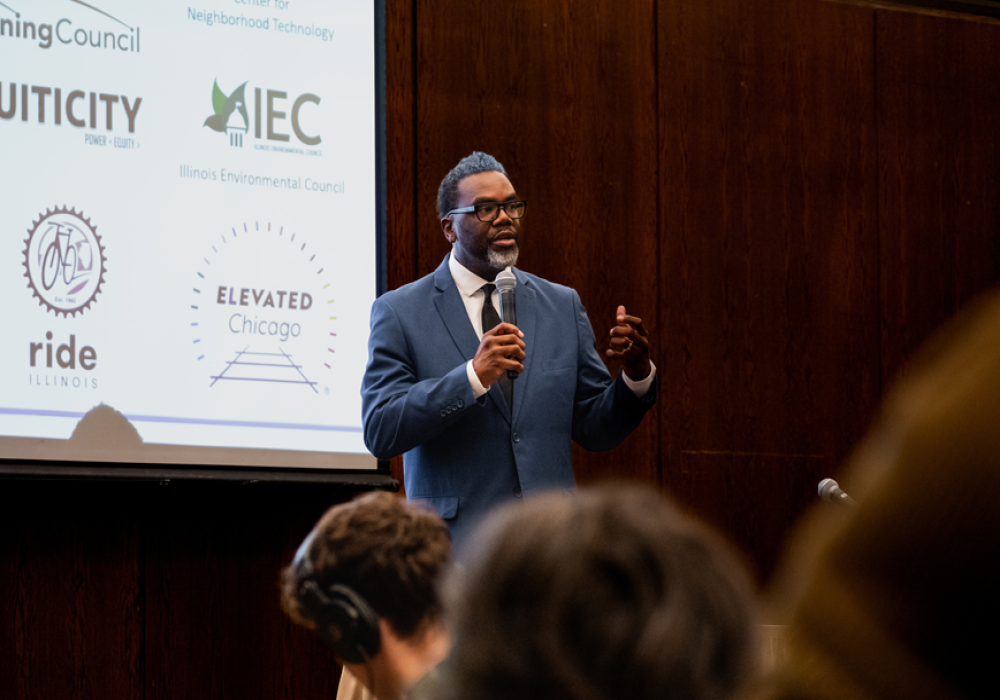Mon - Fri 8:00 - 6:30
Mon - Fri 8:00 - 6:30

Mayor Brandon Johnson plans to make big moves in the food retail market by opening city-owned grocery stores in an effort to address food inequities for South and West Side neighborhoods alike in Chicago.
The decision was finalized at a recent press conference after the abrupt closings of multiple grocery stores in the windy city. These stories include Aldi stores in West Garfield Park and Auburn Gresham and Save-A-Lot stores in West Garfield Park, Austin, Auburn Gresham, and Washington Park. Local communities are now forced to leave their residence to find food elsewhere.
Serving as a former public school teacher in those West Side communities in Chicago, the mayor witnessed several hands-on encounters with the various struggles students experienced, from school closures to gun violence and food scarcity.
To make “a better, stronger, safer future” for youth and communities to have “the tools and resources they need to thrive”, Mayor Johnson has partnered with the Economic Security Project, a nonprofit organization set up to promote guaranteed income policies.
“All Chicagoans deserve to live near convenient, affordable, healthy grocery options,” Johnson said. “My administration is committed to advancing innovative, whole-of-government approaches to address these inequities. I am proud to work alongside partners to take this step in envisioning what a municipally owned grocery store in Chicago could look like.”
The Mayor’s Office did not mention when the municipal-owned grocery stores would break ground, but South and West Side communities will be their first stop since these rural areas are the most affected by the loss of grocery stores.
According to the U.S. Department of Agriculture, 63.5% of residents in West Englewood and 52% of residents in East Garfield Park live more than half a mile from their nearest grocery store, whereas in West Town, less than 1% of residents experience this barrier to food access. Moreover, food access and security link directly to environmental and racial justice. 37% of Black residents and 29% of Latine/x residents are food insecure, compared to 19% of residents overall.
So, what do people have to say about the municipally-owned grocery stores coming to town?
On the outskirts of the city, United States Department of Veteran Affairs IT Specialist Maurice Hickman says his town, Oswego, Illinois, is not heavily affected by the pressing issue of food deserts and scarcity, but he feels bad for the small cities in Chicago.
“[It seems like] they had just opened the Whole Foods,[and now] they are closed,” Hickman said. “All of the stores they closed were in black communities.”
Hickman believes the store facilities had no valid reason to close the stores.
“I feel one of the reasons for high crime and robberies is the lack of jobs and places to go and shop.”
With the mayor stepping in, wanting to make a change by launching the municipal-owned grocery stores, Hickman has hope for the city but knows it will not be easy.
“They need it bad! The people have to leave their neighborhood to travel for groceries,” Hickman expressed. “[Mayor Johnson] is trying to change the culture of Chicago, but it is an uphill battle.”
New Medical Test Added to MedlinePlus...